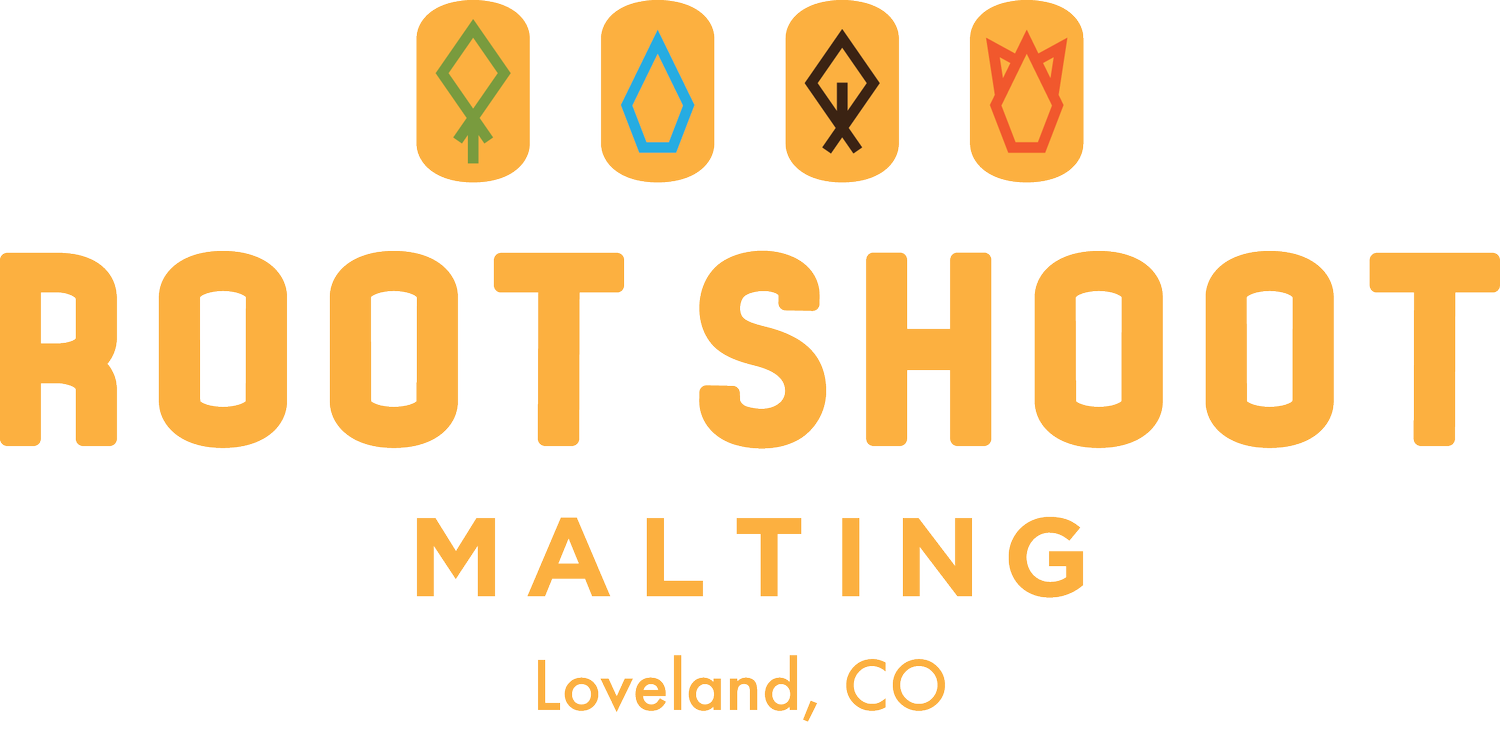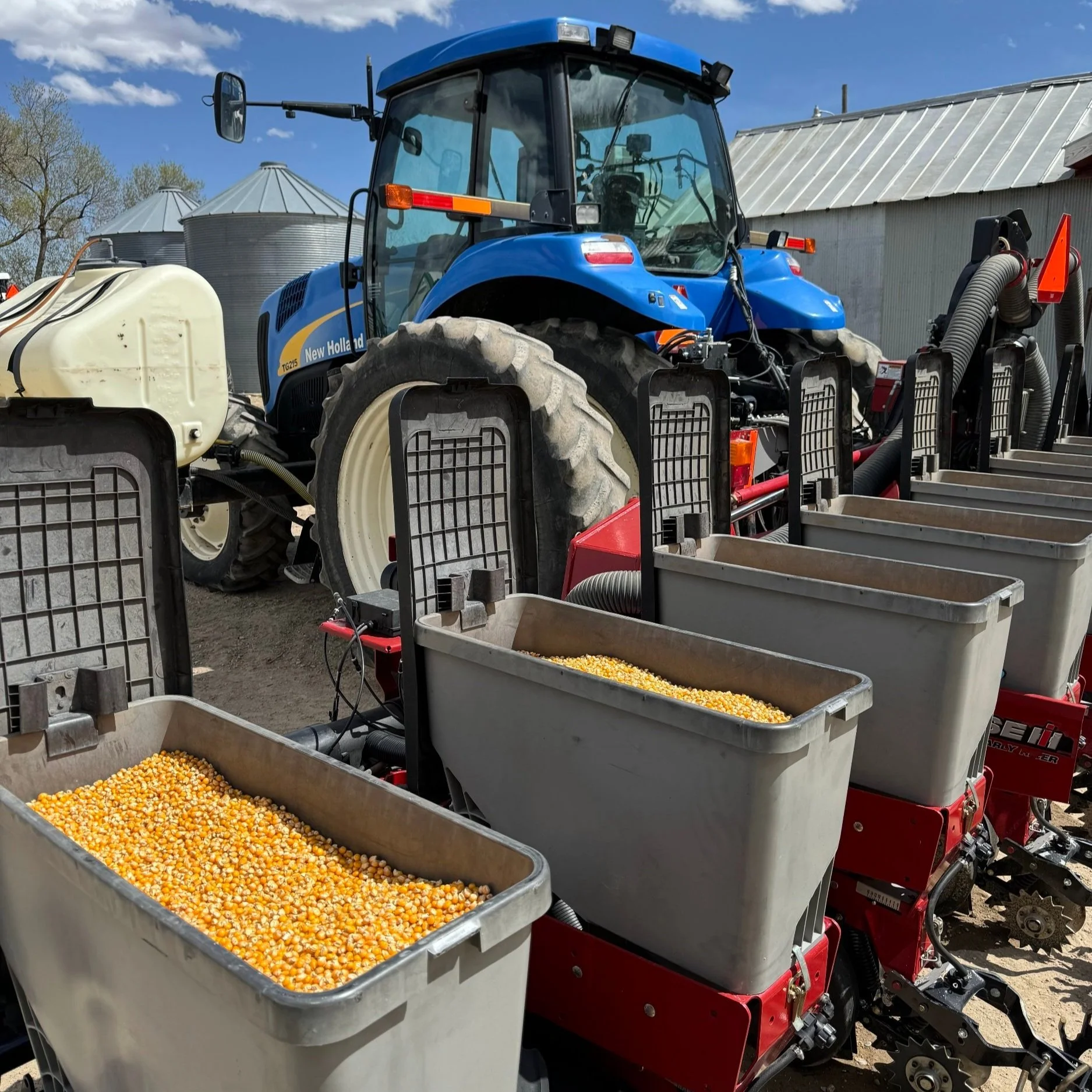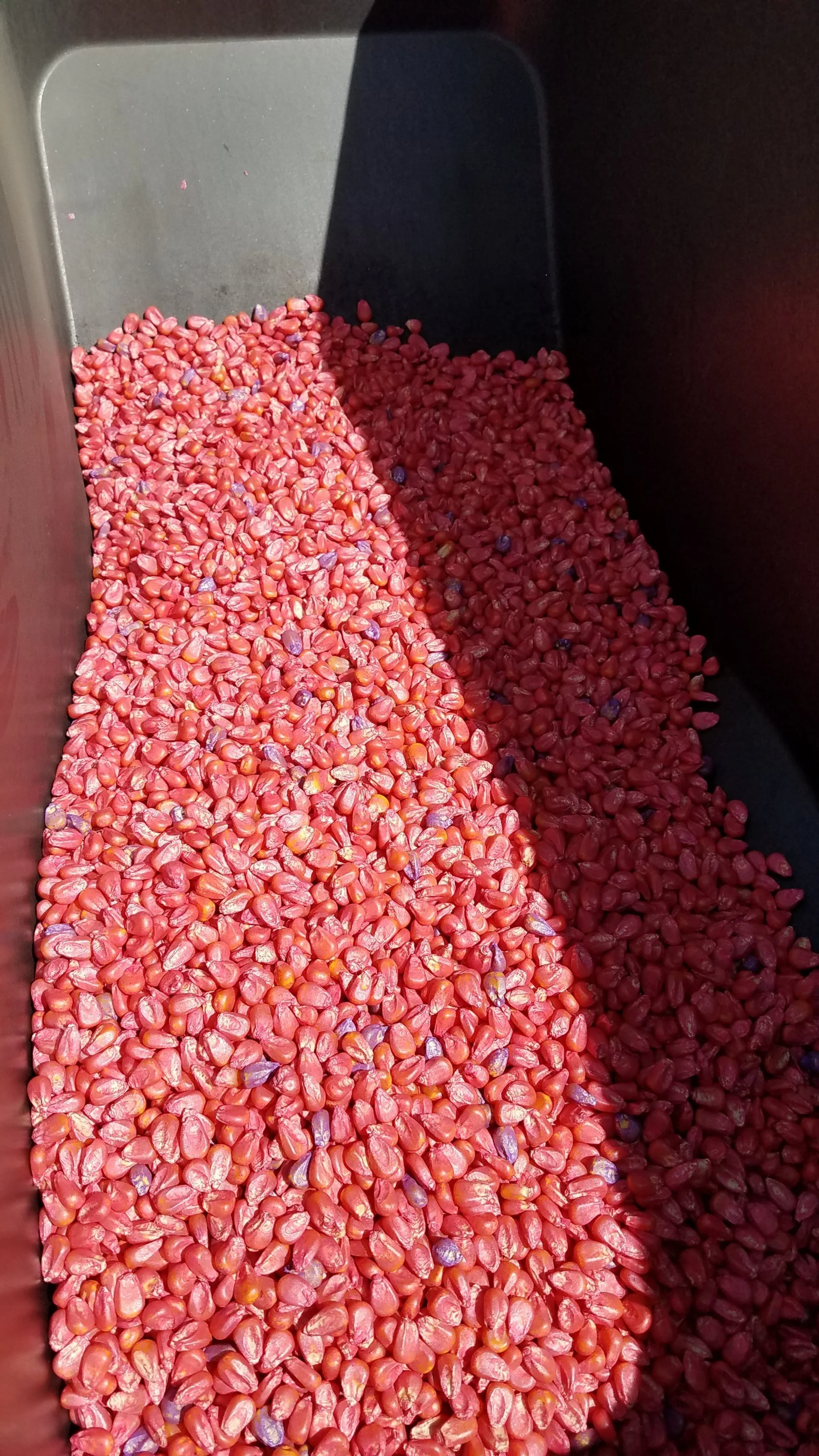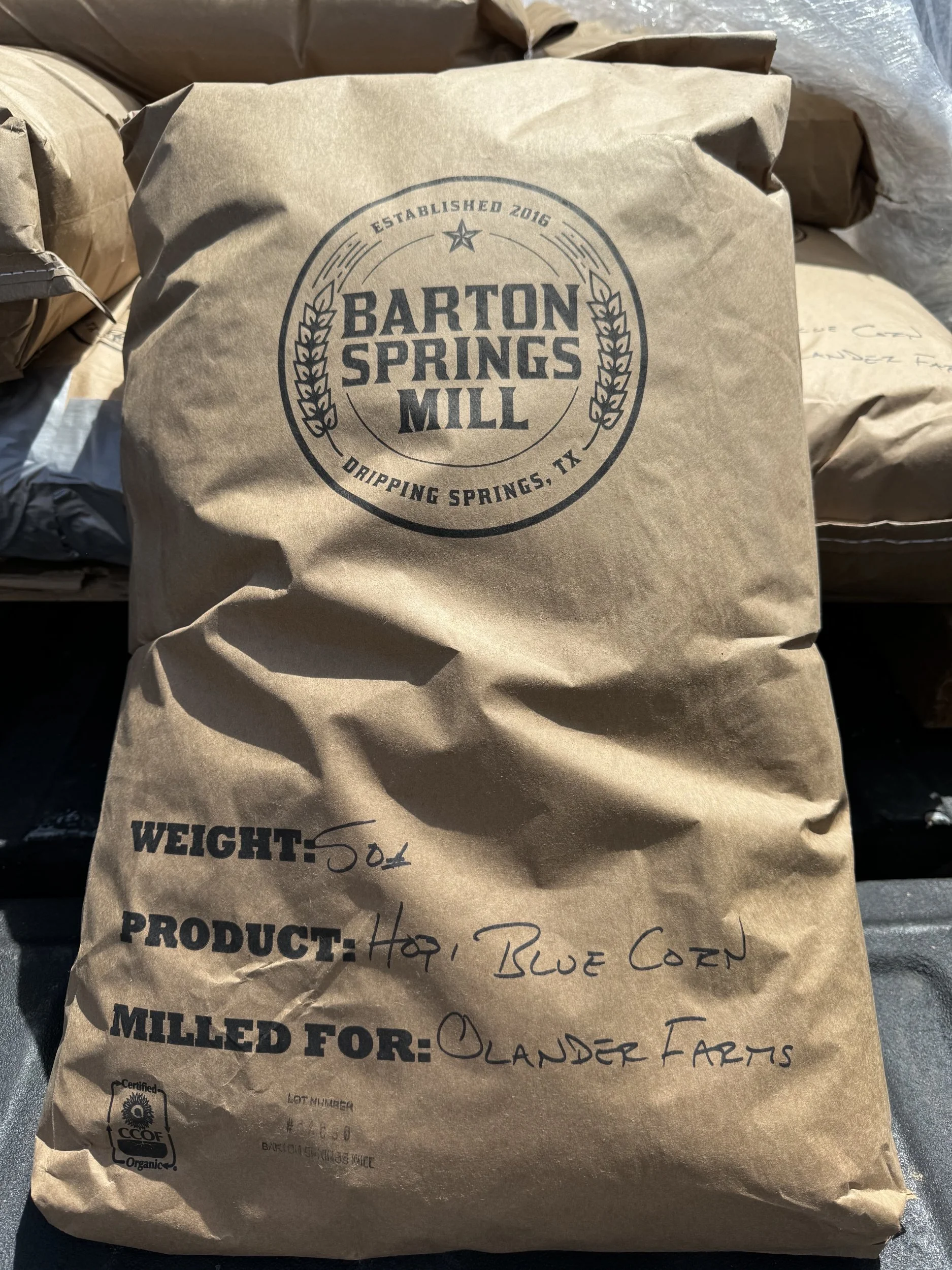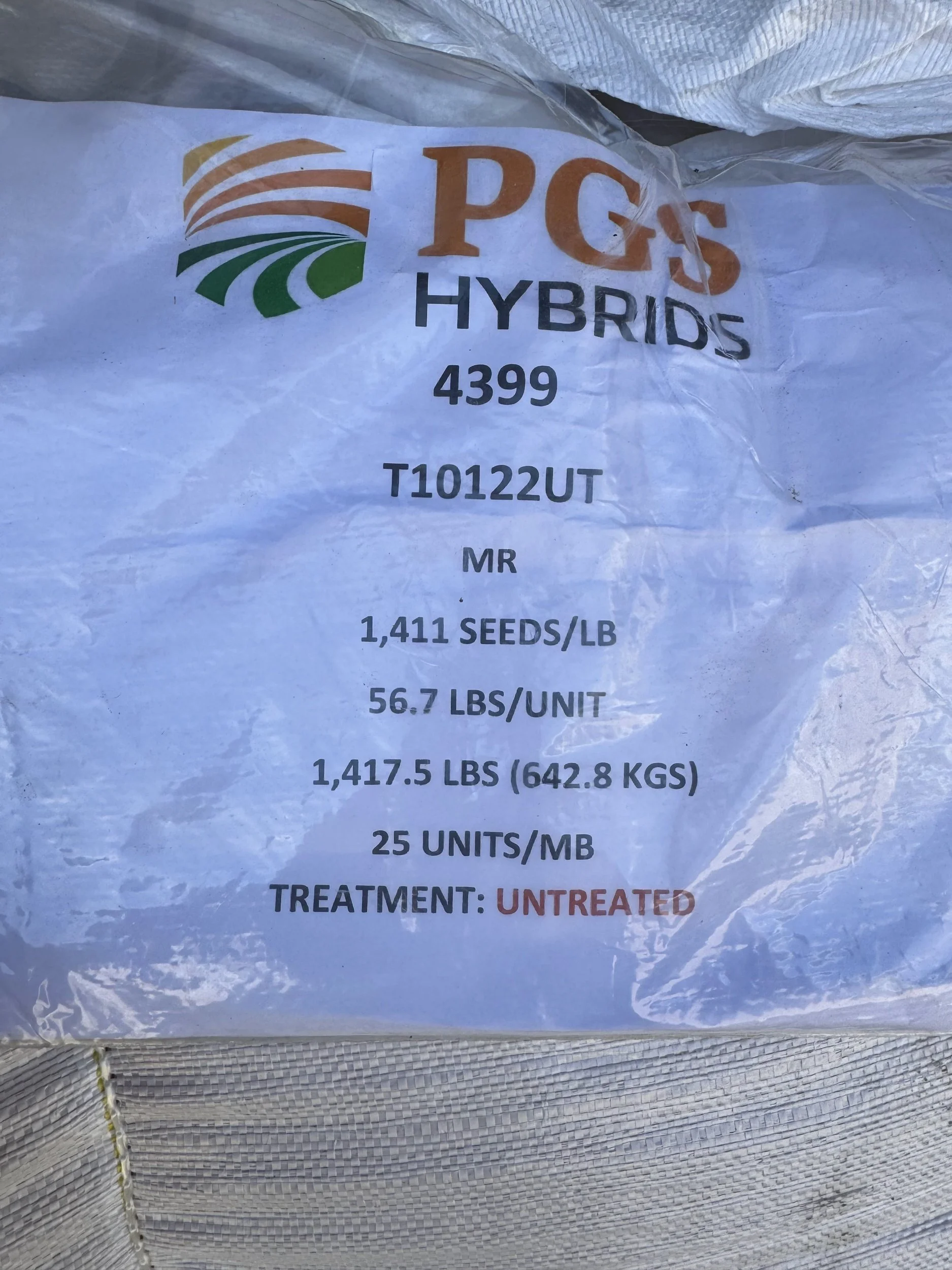Often in our posts, you’ll see us drop farm lingo about what we’re doing and, in springtime, (like now!) what we’re planting. One frequent source of confusion in all that lingo is the difference between all the seed types we plant. We’ll reference our “non-GMO distiller’s corn.” Or tout this year’s, “heirloom Hopi corn.” Some seed is “treated” other seed is “untreated” and, in the end…it makes a farmer’s head spin. If our heads are spinning, we figure you non-farmer folk probably just learn to ignore our farm babble sometimes. Sorry about that.
So, this edition of Field Notes for Farm Nerds: clearing up all this seedy business.
Here’s the scoop on the seeds we sow!
Treated Seed: These seeds have been treated in some manner to reduce the incidence of seed or soil-borne pathogens. Typically, this means the seeds have been treated with a pesticide, fungicide, or preservative and as such, treated seeds are not usually used in organic farming.
Untreated Seed: Exactly as it sounds, these are seeds that have not been treated with a pesticide, fungicide, or preservative. While arguably cleaner and permitted in organic farming, these seeds may have more disease or pest pressure.
Organic Seed: Organic seeds are seeds that have been grown on a certified organic farm that uses certified organic methods. Officially, that is the only definition of organic seed. If you’re growing your own seed in your own garden using organic methods…it’s still not organic seed unless you’re a federally certified organic grower. Over time, however, “organic” has come to be a catch-all term for produce (and seeds!) that are grown without the use of synthetic inputs such as pesticides, herbicides, and fungicides.
Non-GMO: These are seeds that have not been genetically modified meaning, more specifically, the DNA of the organism has not been artificially altered. For us, as farmers who grow corn, this is an important distinction to be aware of as we choose our crops. Corn has commercially available GMO and non-GMO options. But if you’re a home gardener…don’t sweat it. GMO seeds aren’t available to you. In fact, even commercially, there are only 9 crops that have GMO varieties available to farmers: corn, soybeans, cotton, alfalfa, sugar beets, canola, papaya, squash, and potato.
Psst…all that distiller’s corn we’re growing? It’s non-GMO AND un-treated!
Heirloom Seed: Heirloom seed mean it’s old, and it’s been passed down through generations in a traditional manner. There is no single standard definition of how old a variety has to be to be heirloom. The minimum accepted rule of thumb is 50 years. Some argue 75 years. Heirloom seeds play an important role in maintaining the genetic diversity of food, and keeping crops in the rotation that, while they may not be picture-perfect or the highest-yielding varieties, posses unique genetics.
Variety is the spice of life, as they say, and maintaining genetic variety in a food system is the key to surviving the next plant plague. The Irish potato famine? That’s what happens when an agricultural ecosystem doesn’t have healthy variety.
All of these seed distinctions don’t necessarily stand alone. A seed could, for example, be an heirloom organic seed. Or a treated GMO seed. Or a non-treated GMO, a treated non-GMO, an organic, untreated seed…and the combinations continue almost ad-infinitum.
The skinny?
We’ve got a little bit of it all. Though, no GMO crops in any foodstuffs!
Different strokes for different folks.
Different seeds for different needs, growing this family farm, one plant at a time.
